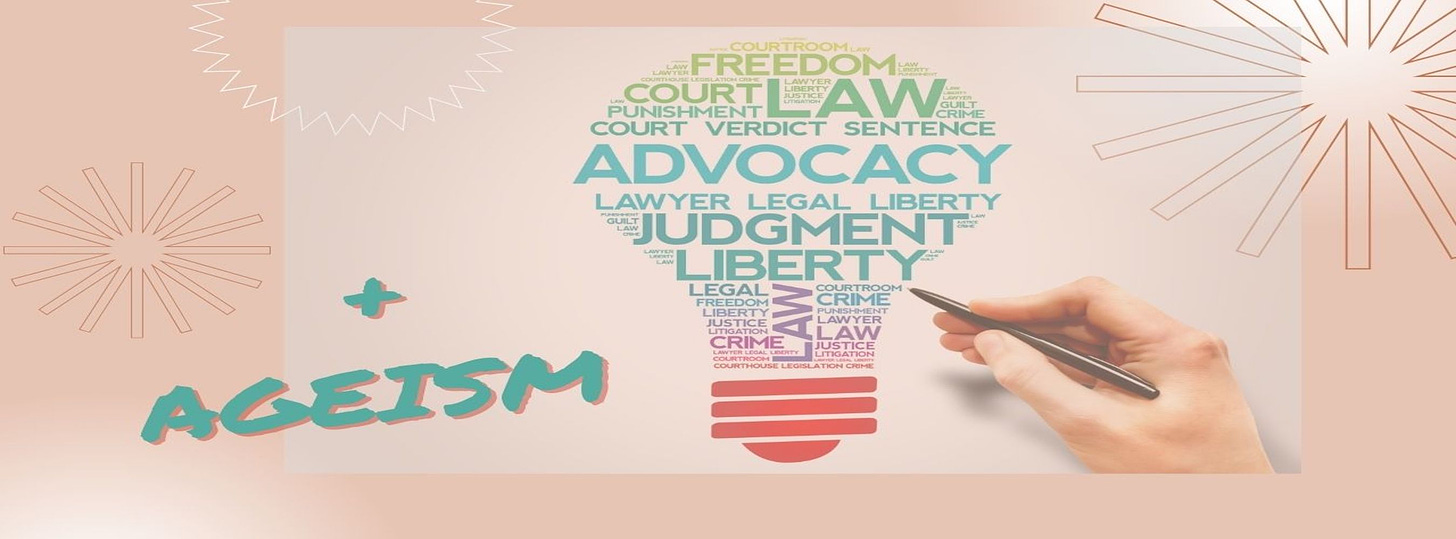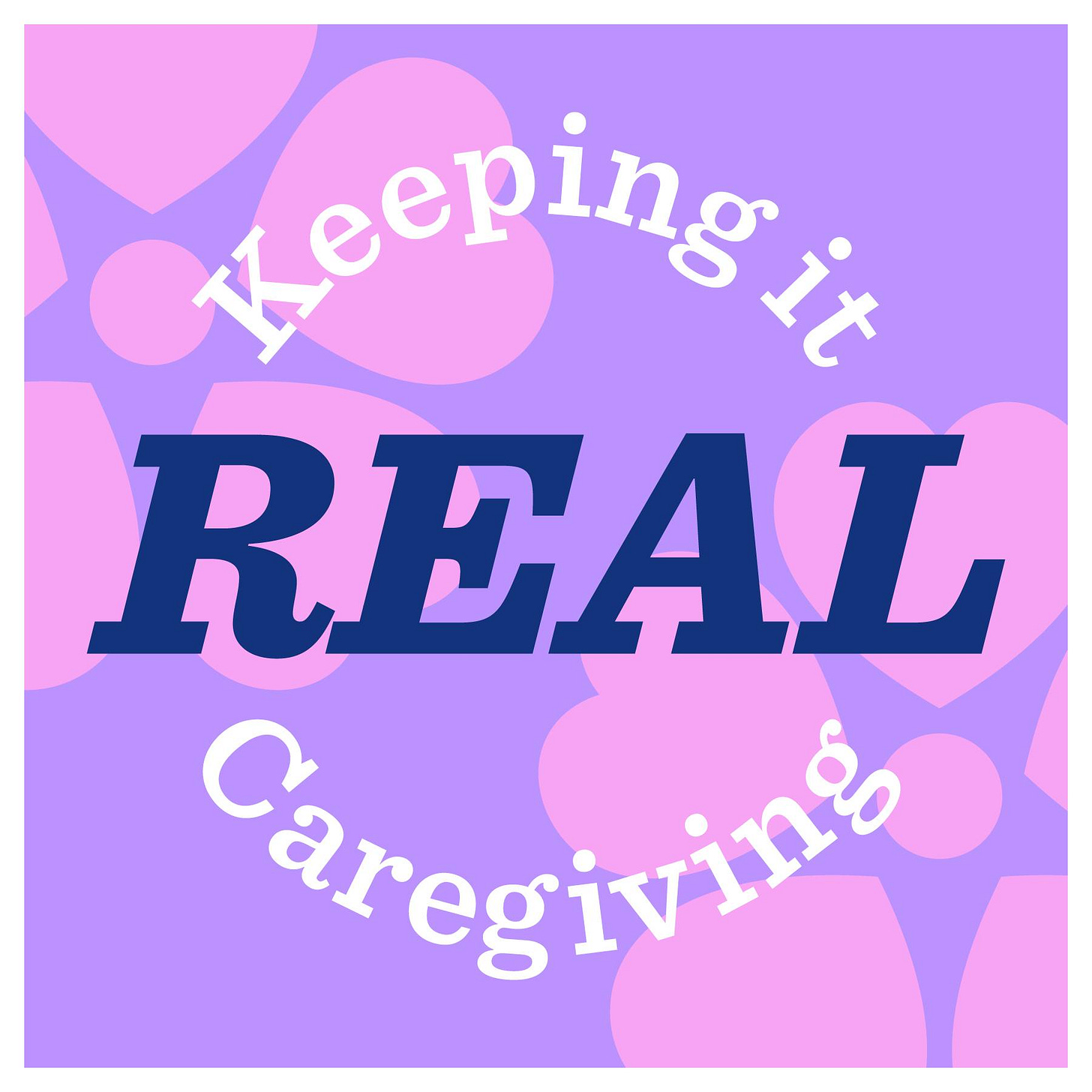Your KIRC Calendar for the week July 10 - 16, 2022 = homework assignments
We're talking dementia, dental care and driving change through advocacy

In today's Keeping It REAL Caregiving newsletter, you'll find information focused on education and advocacy efforts within the space of caregiving and aging, specifically the ongoing battle against ageism.
When you are in the thick of caregiving, it can be tough to find time to do anything other than just 'exist.' However, part of ensuring the landscape improves is for all of us to stay educated and stay involved.

Dementia - What you need to know
From the National Caucus and Center on Black Aging, Inc.
We often hear a great deal about Alzheimer's disease but what you may not know is this:
While older Black Americans are twice as likely as older Whites to have Alzheimer's or another dementia, research hasn't yet identified the cause. Higher rates of cardiovascular (heart and blood vessels) disease may play a role. Some studies indicate that after correcting for overall health and socioeconomic status, these differences disappear. ~Alzheimer's Association
KIRC can tell you from personal experience, that as a family caregiver to my aging mother, I never recall any of her doctors discussing dementia or race-related factors which we should have been alert for.
That reality drives home the point of how important it is to constantly educate ourselves and always work to be an advocate for your loved one.
I encourage you to take some time to watch this video by the National Caucus and Center on Black Aging, Inc. to learn more.
Medicare & Nursing Home News
You may recall recent efforts to include dental coverage as part of Medicare. That is just one of a number of health matters the Centers for Medicare & Medicaid Services (CMS) is tackling and soliciting public comments on.
Dental and Oral Health Services
Medicare currently pays for dental services in a limited number of circumstances, such as when that service is an integral part of specific treatment of a beneficiary's primary medical condition.
Some examples include reconstruction of the jaw following accidental injury, tooth extractions done in preparation for radiation treatment for cancer involving the jaw, or oral exams preceding kidney transplantation.
We are proposing to clarify and codify certain aspects of our current Medicare FFS payment policies for dental services.
We are also proposing and seeking comment on payment for other dental services, such as dental exams and necessary treatments prior to organ transplants, cardiac valve replacements, and valvuloplasty procedures that may be inextricably linked to, and substantially related and integral to, the clinical success of an otherwise covered medical service.
We are also requesting comments on other types of clinical scenarios where dental services may be inextricability linked to, and substantially related and integral to, the clinical success of clinically related services, or furnished in connection with other covered medical services, and the potential establishment of a process to review public submissions of recommendations for identifying the circumstances when the policies may apply.
Finally, we are also seeking comment on potential future payment models for dental and oral health care services, and other impacted policies.
To read about other proposed rules and calls for public comment, click here
To learn more about Justice in Aging efforts for improved oral care for older adults, click here
From Justice in Aging: Nursing homes

On June 29, the Centers for Medicare & Medicaid Services (CMS) released revised Surveyor’s Guidelines for nursing facilities
The Guidelines are used by government inspectors in determining whether and to what extent a nursing facility has violated federal requirements.
The revised Guidelines implement certain regulations promulgated in 2016, and also incorporate concepts from President Biden’s recently announced initiative to improve nursing facility care. Among other things, the revised Guidelines address staffing levels, visitation rights, infection prevention and control, and arbitration agreements. Notably, the Guidelines improve transfer/discharge standards and set forth important strategies to provide culturally competent care.
The revised Guidelines total 847 pages and include both new and old material. Justice in Aging has prepared a new issue brief, Understanding CMS’s New Nursing Facility Guidance, that summarizes and explains the new revisions, with a focus on the revisions most important to residents and their advocates.
👏🏽Like the content KIRC is delivering? Consider becoming a Supporting Sponsor. In order to continue growing, KIRC values reader support and your purchase of a subscription will support the ability to provide more journalistic stories focused in the field of aging. We invite you to join others in supporting our continuing efforts.
Advocacy
What is Ageism?
Merriam-Webster dictionary defines ageism as:

Raising awareness to the prevalence and the widespread impacts of ageism is one of the American Society on Aging's policy priorities.
Efforts are being focused on how ageism plays a role in healthcare, our culture (television, media, news coverage) and our laws.
What does this have to do with caregiving? Well, if you are currently caring for an older loved one I urge you to:
Pay close attention to how your loved one is perceived and treated by others.
Listen to how others talk to them and the terms used to reference them.
Think about the medical and legal frameworks you and your loved one must move through.
Ask yourself, are any of the challenges faced rooted in ageism?
Then consider this: as family caregivers, we have a unique opportunity. Our caregiving duties provide us somewhat of a crystal ball into the future.
We are getting an up close and first hand look at what it means to age in our society. This is also our chance to think about our own futures and ask ourselves, 'What do I want my life to look and feel like in 10, 20, 30 or more years?'
To learn more about how various organizations are combating ageism and how you can get involved, check out the following:
Fellowship opportunity
Keeping It REAL Caregiving creator and family caregiver, Julia Yarbough, was selected as a Journalist in Aging Fellow in 2020. I encourage anyone who has the ability to capture and share stories to apply for this program.

From the Gerontological Society of America
The Gerontological Society of America (GSA) and the Journalists Network on Generations are welcoming applications — from journalists who represent general-audience or ethnic/community news outlets in the U.S. and who are covering/wish to cover issues in aging — for the 13th year of the Journalists in Aging Fellows Program.
Support is provided by grants from Silver Century Foundation, The John A. Hartford Foundation, and NIHCM Foundation. Stories resulting from the last 12 years are available on GSA's website.
By 2030, one-fifth of the country’s population will be age 65+, with the fastest growing segment being ethnic minorities.
To apply for the GSA Journalists in Aging Fellows Program click here
To all the caregivers out there - THANK YOU for what you do. Remember: take care of yourselves while caring for others.
Until next time~
Julia




